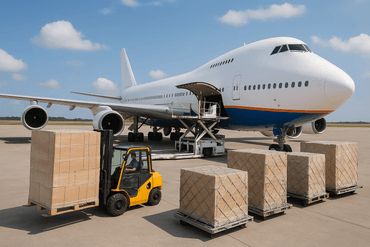
What Are Colombia’s Main Imports and Exports?



Revenue from trade in Colombia made up over 34% of the country’s GDP in 2017 and their international trade has been growing and multiplying by five according to the World Bank. The country mainly trades with the United States, Germany, Panama, China, Brazil and the Netherlands. They have also signed several trade agreements with the U.S., MERCOSUR countries which are mainly Central American, Caribbean countries and the European Union as well as ANC countries. In addition, together with Chile, Mexico and Peru, they signed the Pacific Alliance to increase trade relations with Asian markets.
Although their exports have experienced a decrease because of economic slowdown in their key trade partner countries, the following exports still remain Colombia’s main exports.
Exports
Coal
Coal is one of the main exports from Colombia and having exported 33.834 million metric tons of coal in the first five months of 2019 they’re still going strong in the coal exportation sphere. This figures show that they exported less coal during that period in 2019 than they did in the same time period in 2018.
However, they bounced back in the months following May with government reporting collecting $738 million for its coal sold to overseas markets which is an increase of 30% from the $568 million from 2018. For the rest of the year Colombian coal is projected to maintain steady prices.
Colombia still ranks among the leading mining countries in the world with a massive reserve of naturally occurring minerals including coal.
Petroleum
Colombia produces crude petroleum oil with export revenue for the product reaching the tune of $11.1 billion. By December of 2018, the country had reported averaged 591.985 barrels per day. Colombia became an exporter of oil in the mid 80s and hasn’t looked back since with the United States being the main importer of Colombian crude oil.
Colombia’s crude oil exports make up 57% of the country’s total exports. It exports the oil through state owned Colombian Petroleum Enterprise also known as Ecopetrol but the country consumes its gasoline and additional fuels locally. The profits from oil exploration in the country used to be shared 50⁄50 between the state and the private sector but because of many insurgent attacks on oil interests the private sector has fewer investments in the oil sector.
Flowers
Colombia is a major exporter of flowers that reach a wide range of markets. The country’s proximity to the equator gives it a unique growth environment for flowers because of the tempered climate. The nation is the second largest exporter of cut flowers in the world with a 15% market share globally. Their flowers are easily distinguished because of their volume, big stems and strong scents.
Out of the 400 farmers growing flowers in Colombia, 300 of them are growing them for export. The country has 4,000 hectares of land dedicated to specialized flower production with roses taking the biggest share of space. Interestingly, Colombia is the world biggest exporter of chrysanthemums and not roses because of stiff competition from countries like Kenya that plant exquisite roses as well. Apart from roses, Colombia also produces mini carnations, pompons, chrysanthemums, and alstoemerias. The United States takes 80% of the roses from Colombia followed by Russia and the United Kingdom.
Bananas
Colombia is the sixth largest exporter of bananas in 2019. They exported bananas worth $859 million with the United States and Europe as their main market in 2018. This was a growth of 1.4% of the same produce in 2017. In 2019, the banana exports brought in revenue worth $868 million. The country was able to achieve this growth by cultivating more areas and renewing plantations that had ceased production.
Imports
Despite the fact that Colombia has very strict regulations about importing cars into the country it’s still a leading import product entering the country. The Colombian authorities do not allow importation of used cars so only brand new cars can be imported. There is an exception made for foreign diplomats relocating to Colombia but they must first be registered with the ministry of foreign affairs.
2018 saw an increase in the number of automotives imported into the country and the Chevrolet was the brand most imported and sold in the country. Approximately 50,000 units of this car were sold in the year. French brand Renault came in second with 49.7 thousand units.
Machinery
Most of the machinery imported into the country is farm machinery as well as computers. The country spent $5.8 billion on machinery and equipment imports. The majority of these exports entered the country as company imports.
Since the country joined the WTO Information Technology Agreement in 2012, which requires member countries to eliminate tariffs on a majority of information technology products, Colombia enjoys importation of some of the latest farming, manufacturing and processing plant machinery and equipment that has really helped grow their economy.
Related Articles


